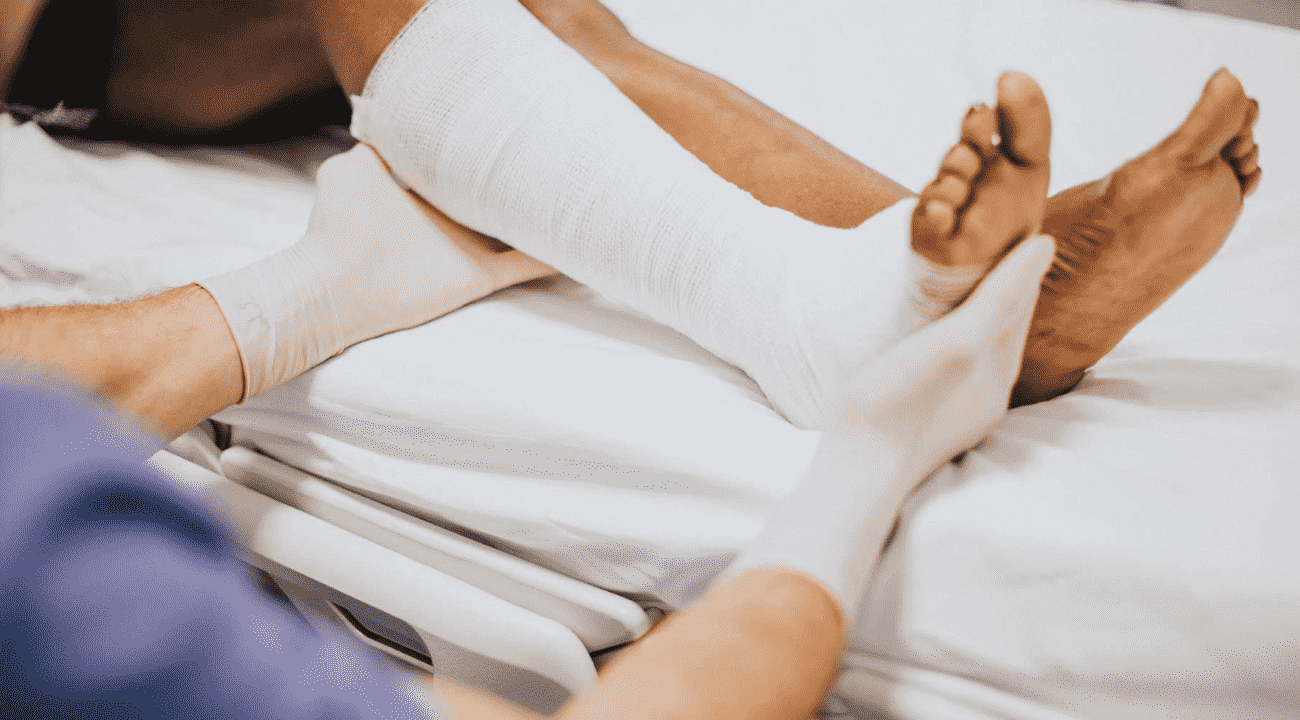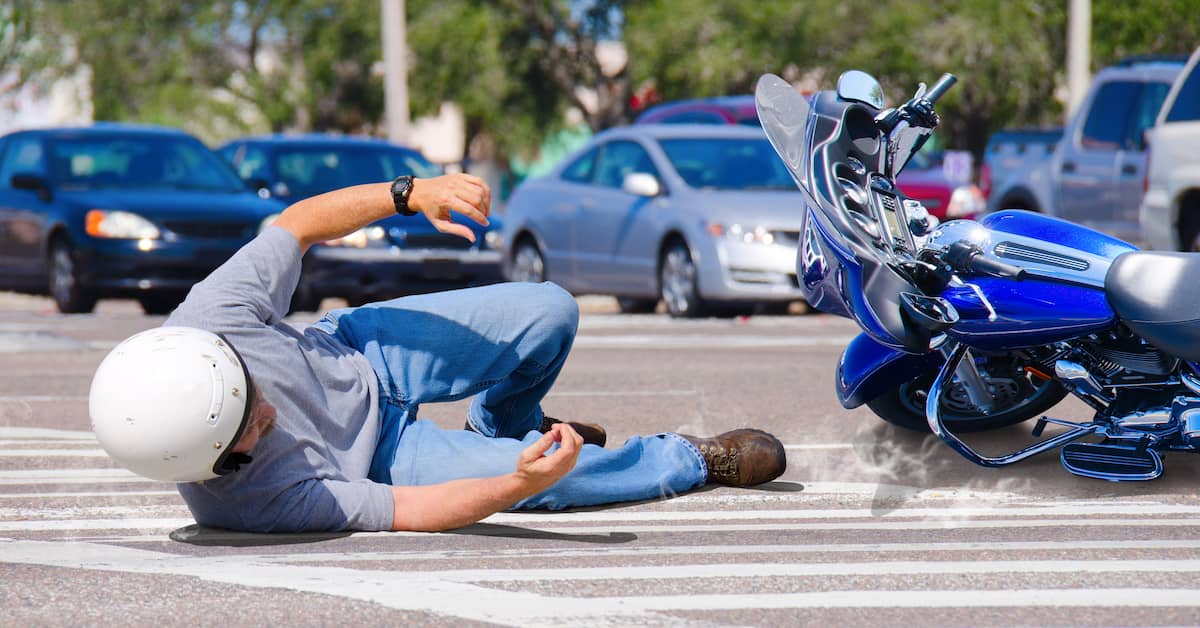Personal Injury Lawyers In Florida
How a PERSONAL INJURY LAWYER IN FL CAN HELP YOU
TOP-RATED PERSONAL INJURY LAWYERS IN FLORIDA
Finding the right personal injury lawyer in Florida can make all the difference in securing the compensation you deserve. Our team at Ehrlich & Naparstek is renowned for our expertise and dedication, ensuring each client receives top-tier representation. With over three decades of experience, we have a deep understanding of Florida’s personal injury laws and a proven track record of success.
NAVIGATING THE FLORIDA PERSONAL INJURY CLAIM PROCESS
Navigating a personal injury claim involves several key steps: consulting with an attorney, gathering and preserving evidence, filing a claim with the relevant parties, negotiating a settlement, and potentially litigating the case in court. Working with experienced attorneys like Ehrlich & Naparstek ensures that you have the best chance of a favorable outcome.
FACTORS AFFECTING PERSONAL INJURY CASES IN FLORIDA
Several factors influence the outcome of personal injury cases, including the severity of injuries, clarity of evidence, and the defendant’s behavior. Florida follows a comparative negligence rule, meaning your compensation could be reduced if you’re found partially at fault. Additionally, timely action is critical due to Florida’s statute of limitations for filing claims.
UNDERSTANDING THE RECENT UPDATES TO PERSONAL INJURY LAW IN FLORIDA
KEY CHANGES IN PERSONAL INJURY LAW
The landscape of personal injury law in Florida has seen significant changes recently. These updates impact various aspects of how personal injury cases are handled, including statute limitations, liability standards, and compensation caps. Staying informed about these changes is crucial for anyone involved in a personal injury case, whether as a victim or as legal representation. For more detailed information, you can refer to the Florida Senate’s Bill Information.
HOW THESE CHANGES AFFECT YOUR CASE
Understanding how these legal updates affect your personal injury case can help you navigate the complexities of the legal system more effectively. The recent changes may influence the timeline for filing a claim, the types of evidence required, and the potential compensation you might receive. It’s essential to consult with a knowledgeable personal injury attorney who can provide guidance tailored to your specific situation. For official updates, visit the Florida Bar’s News.
WHAT TO DO AFTER A PERSONAL INJURY ACCIDENT
- Ensure Safety: Move to a safe location if possible.
- Seek Medical Help: Get immediate medical attention.
- Report the Incident: Notify the relevant authorities and your insurance company.
- Document the Scene: Take photos and gather contact information from witnesses.
- Consult an Attorney: Get legal advice to protect your rights.
What Types of Accidents Lead to a Personal Injury Claim?
Personal injury claims can arise from various accidents, each involving different circumstances and potential for compensation. Here’s a detailed look at the types of accidents that commonly lead to personal injury claims, along with authoritative sources for further reading:
Car Accidents
Car accidents can cause serious injuries, including whiplash, broken bones, and head trauma. They often result from negligence, distracted driving, or DUI.
Motorcycle Accidents
Motorcycle accidents frequently lead to severe injuries such as road rash, fractures, and spinal cord damage. Riders face higher risks due to less protection.
Truck Accidents
Truck accidents can result in catastrophic injuries due to the size and weight of commercial vehicles. Common injuries include traumatic brain injuries and spinal cord damage.
Slip and Fall Incidents
Slip and fall incidents often cause injuries like sprains, fractures, and head injuries. They usually occur due to wet floors, uneven surfaces, or poor lighting.
Medical Malpractice
Medical malpractice involves injuries from negligent medical care, including surgical errors, misdiagnosis, and medication mistakes. These can lead to long-term health complications.
Workplace Injuries
Workplace injuries range from minor cuts and bruises to severe cases like amputations and chronic conditions. They can result from unsafe working conditions or accidents on the job.
Product Liability Cases
Product liability cases arise when defective products cause injuries such as burns, cuts, or poisoning. These injuries often occur due to manufacturing flaws or inadequate warnings.
Bicycle Accidents
Bicycle accidents can lead to serious injuries, including fractures, head injuries, and internal injuries. These accidents often involve collisions with motor vehicles.
Burn Injuries
Burn injuries range from minor first-degree burns to severe third-degree burns. They can result from exposure to fire, chemicals, or electricity.
Pedestrian Accidents
Pedestrian accidents often result in serious injuries such as fractures, head trauma, and internal injuries. These incidents typically occur when vehicles strike pedestrians.
Boating Accidents
Boating accidents can cause drowning, hypothermia, and traumatic injuries. They are often due to operator negligence or mechanical failures.
Construction Accidents
Construction accidents can lead to serious injuries like falls, electrocutions, and equipment-related injuries. These are often due to unsafe working conditions.
Dog Bites
Dog bites can result in puncture wounds, infections, and scarring. These incidents often require medical attention and can cause long-term physical and emotional trauma.
Defective Products
Defective products can cause injuries such as cuts, burns, or poisoning. These injuries result from design flaws, manufacturing defects, or inadequate safety warnings.
Nursing Home Abuse
Nursing home abuse includes physical, emotional, and financial harm to residents. Common injuries include bruises, fractures, and psychological trauma.
Train Accidents
Train accidents can cause severe injuries such as fractures, spinal injuries, and traumatic brain injuries. These accidents often result from derailments or collisions.
Uber/Lyft Accidents
Uber/Lyft accidents can lead to injuries ranging from whiplash to severe trauma. These incidents often involve collisions with other vehicles or unsafe driving practices.
Bus Accidents
Bus accidents can cause injuries such as fractures, head injuries, and internal trauma. These accidents often result from collisions or sudden stops.
Swimming Pool Accidents
Swimming pool accidents can lead to drowning, near-drowning, and other injuries like head trauma. They often occur due to inadequate supervision or unsafe conditions.
Sports Injuries
Sports injuries include sprains, fractures, and concussions. They can occur during practice or competition and often require specialized medical care.
Assault and Battery
Assault and battery can result in injuries such as bruises, fractures, and psychological trauma. These incidents involve physical violence and intentional harm.
What Types of Accidents Lead to a Personal Injury Claim?
Personal injury claims can arise from various accidents, each involving different circumstances and potential for compensation. Here’s a detailed look at the types of accidents that commonly lead to personal injury claims, along with authoritative sources for further reading:
What Injuries Qualify for a Personal Injury Claim?
Any injury caused by someone else’s negligence that results in damages may be listed on a personal injury claim. These claims are not limited to severe injuries; even minor injuries can lead to significant compensation depending on the circumstances.
Here are some commonly cited personal injuries that can qualify for a claim:
Physical Injuries
Broken Bones
Fractures from falls, auto accidents, or other traumatic events can lead to significant medical expenses and recovery time.
Scarring
Permanent marks or disfigurement resulting from burns, cuts, or other injuries can have lasting physical and emotional effects.
Disfigurement
Severe injuries causing permanent changes to one’s appearance often require extensive medical treatment and can impact quality of life.
Chest Injuries
Damage to the ribs, lungs, or internal organs can arise from various types of accidents and often require immediate and ongoing medical attention.
Neck Injuries
Injuries ranging from minor strains to severe damage to neck muscles and tissues, often resulting from car accidents or falls.
Head Injuries
Concussions, skull fractures, and other traumatic head injuries can have serious, long-lasting effects.
Back Injuries
Sprains, herniated discs, and other spinal damage can cause chronic pain and mobility issues.
Traumatic Brain Injuries (TBI)
Severe impacts affecting brain function, which can lead to long-term cognitive and physical impairments.
Whiplash
Neck strain from sudden movements, commonly occurring in car accidents, can lead to significant pain and require extensive rehabilitation.
Spinal Cord Injuries
Damage to the spinal cord that can result in partial or complete paralysis.
Dismemberment
The loss of limbs or other body parts can drastically alter one’s life and require lifelong care and adaptation.
Wrongful Death
Fatalities caused by someone else’s negligence can lead to claims by surviving family members.
Emotional Injuries
Pain and Suffering
Ongoing physical pain and discomfort that significantly impact daily life.
Anxiety
Persistent worry or fear resulting from the injury can affect mental health and daily functioning.
Depression
Long-term sadness or loss of interest in activities due to the injury.
Post-Traumatic Stress Disorder (PTSD)
Severe stress response after a traumatic event, affecting one’s ability to live normally.
Financial Losses
Medical Bills
Expenses for treatment, rehabilitation, and ongoing care can accumulate quickly.
Lost Wages (Short-term)
Income lost during recovery periods when the injured person is unable to work.
Loss of Income (Long-term)
Reduced earning capacity due to long-term or permanent disability.
These injuries, whether physical, emotional, or financial, can form the basis of a personal injury claim if they were caused by another party’s negligence. If you believe you have a valid claim, it is crucial to consult with a qualified personal injury attorney to discuss your case.
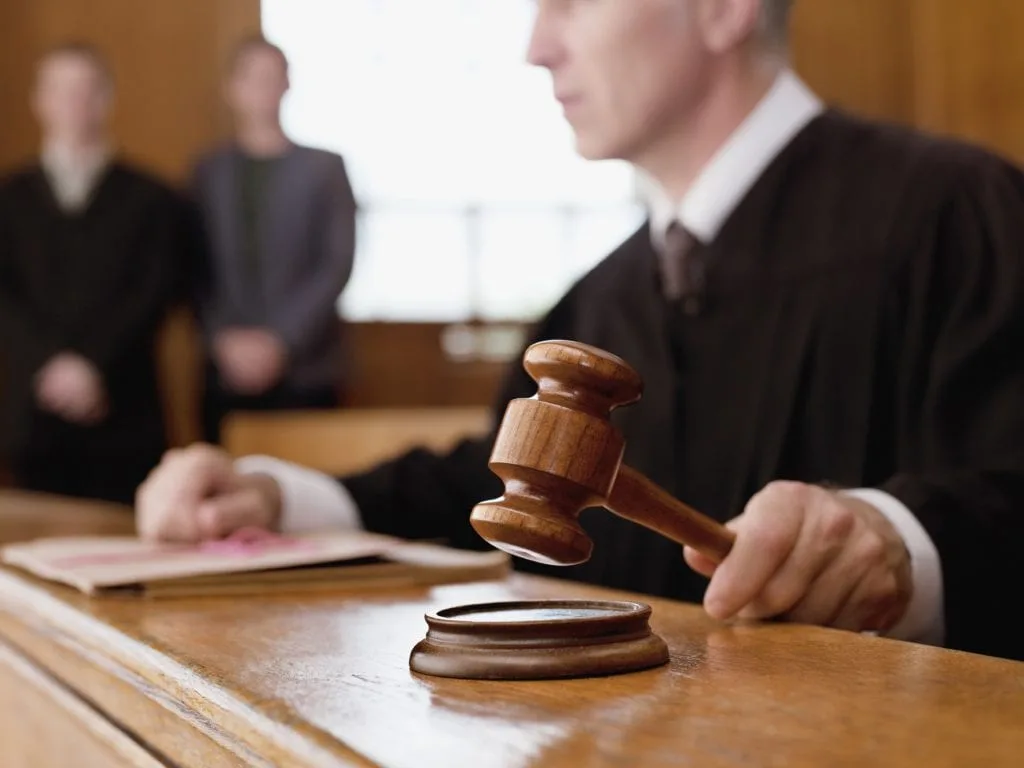
THE IMPORTANCE OF ACTING SWIFTLY AND CHOOSING THE RIGHT LEGAL REPRESENTATION
Swift action is crucial in personal injury cases to preserve evidence and meet legal deadlines. Choosing the right lawyer ensures you have a knowledgeable advocate who can navigate the complexities of your case, negotiate effectively, and, if necessary, represent you in court.
Filing a Florida Personal Injury Claim – Step-by-Step Guide
Filing a personal injury claim in Florida can be challenging. This guide simplifies the process, highlighting key steps and how an experienced attorney can help.
Step 1 – Gather Evidence
Collect the following to support your claim:
- Photos/videos of the accident scene
- Police reports
- Witness statements and contact information
- Medical treatment records
- Documentation of lost wages and medical bills
Step 2 – File Your Personal Injury Claim
Notify all relevant parties of your intent to seek compensation. Include any entity that shares liability. Our legal team can help you identify responsible parties and start your claim.
Step 3 – Negotiate a Fair Settlement
Your attorney will:
- Communicate with insurance companies and their adjusters
- Negotiate with the defendant’s attorneys
- Aim for a favorable settlement at any point before a verdict is reached
Step 4 – File a Personal Injury Lawsuit
If a fair settlement cannot be reached:
- File a personal injury lawsuit to seek compensation
- Be prepared for opposing parties to present low offers
- Our legal team will help you decide if filing a suit is necessary
Step 5 – Defend Your Case in Court
If the case goes to trial, your attorney will:
- Prove your injury resulted from another’s negligence
- Seek maximum compensation under Florida laws
- Ensure you understand possible outcomes and verdicts
Factors Influencing Personal Injury Cases in Florida
What Factors Can Affect Personal Injury Cases In Florida?
Personal injury law in Florida outlines specific guidelines and damages caps that can influence the outcome of a case. Here are the key factors that can impact your settlement amount:
The Type of Injury
The type and severity of the injury can significantly influence the settlement amount. Serious injuries may require hospitalization but can lead to full recovery, while catastrophic injuries can have long-lasting impacts. Any pre-existing conditions affecting the new injuries will also be considered. The injury’s impact on both short-term and long-term health determines medical costs, lost wages, and future care needs, which directly translate into the settlement amount. Having an experienced Florida personal injury lawyer is crucial to ensure all aspects of your injury are considered.
The At-Fault Party
Fault in an accident is assigned in percentages. Any party found less than 50% responsible for their injuries can claim damages. For example, if a driver fails to yield and causes an accident but you were speeding, both parties share the fault. What matters most is what can be proven and successfully argued in court. Working with a law firm with a proven track record in winning personal injury lawsuits is essential.
Liability
Determining liability involves identifying who failed in their duty of care and whether the harm was intentional. For instance, in a slip-and-fall case at a grocery store, determining who is responsible (the employee, manager, company, or landlord) can be complex. An attorney with experience can help untangle these factors to file claims against the appropriate parties.
Comparative Negligence
Florida’s negligence laws currently follow two models due to HB 837: pure comparative negligence and modified comparative negligence.
- Pure Comparative Negligence: Applies to accidents before HB 837. All parties can claim damages for the percentage they are not at fault.
- Modified Comparative Negligence: Applies to accidents after HB 837. Under the 50% bar rule, any party more than 50% at fault cannot recover damages. This rule does not apply to medical negligence cases in Florida.
Damage Caps
HB 837 enforces stricter guidelines on damage caps in personal injury cases:
- Economic Damages: Claims for past medical expenses are capped by the amount actually paid, requiring receipts or records.
- Letters of Protection (LOP): Must be provided as evidence in court, with medical costs listed at what an insurance company would pay if the plaintiff is insured, or a percentage of Medicare/Medicaid rates if uninsured.
Insurance coverage limits can also affect court rulings on damages.
The Statute of Limitations
The statute of limitations is the period within which you must file a personal injury lawsuit. In Florida, this period generally starts from the date of the injury. If the injury is discovered later, the statute of limitations begins when you become aware of it.
For accidents occurring after March 24, 2023, you have two years to file a claim. For accidents that occurred before this date, you have four years. There are exceptions to these limits, such as cases involving government entities, sexual assault, or incidents where the victim was a minor at the time. It’s crucial to be aware of these timelines to ensure you don’t lose your right to seek compensation.
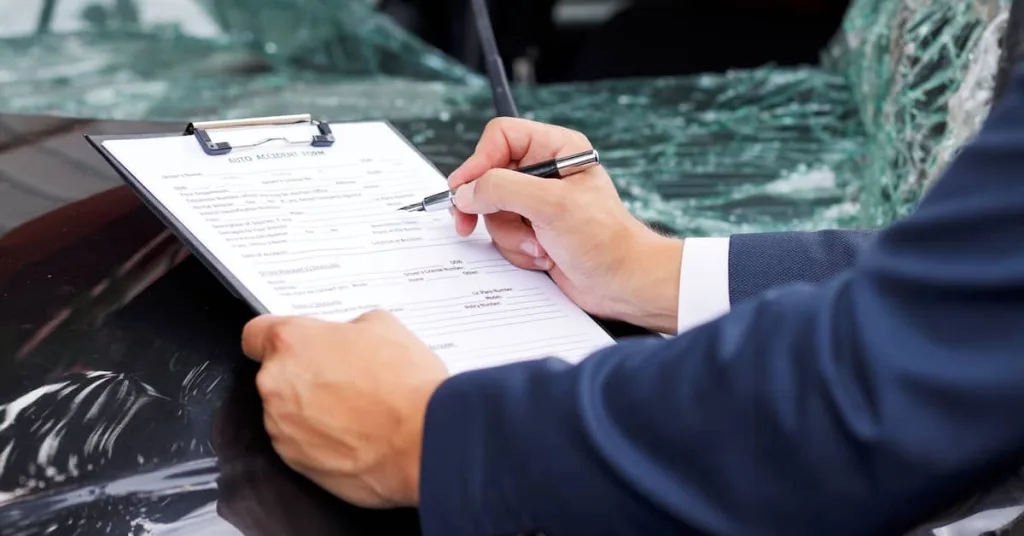
Understanding the Types of Damages in Florida Personal Injury Cases
Compensatory Damages
Compensatory damages are designed to reimburse the injured party for financial losses directly caused by the accident. They are divided into two categories: special damages and general damages.
Special Damages
Special damages, also known as economic damages, have a specific monetary value and include expenses such as:
- Medical bills
- Lost wages
- Property damage
Calculating these damages is straightforward since they cover quantifiable losses. To secure compensation, your attorney will need to present solid evidence, including medical records, pay stubs, and repair invoices. These documents are essential for demonstrating the financial impact of the accident and ensuring that you are reimbursed for your out-of-pocket expenses.
General Damages
General damages, or non-economic damages, cover intangible losses such as:
- Pain and suffering
- Emotional distress
- Loss of enjoyment of life
- Loss of companionship (loss of consortium)
Unlike special damages, general damages are more abstract and harder to quantify. Determining the value of these losses requires a deep understanding of the accident’s impact on the victim’s quality of life. Our experienced attorneys at Ehrlich & Naparstek excel in evaluating these impacts thoroughly to ensure our clients receive fair compensation for their suffering and non-economic hardships.
Punitive Damages
Punitive damages are awarded to punish the at-fault party for egregious misconduct or gross negligence and to deter similar actions in the future. These damages are not common and are only granted when it is evident that the defendant’s actions were particularly reckless or malicious.
In Florida, punitive damages are only awarded when clear evidence shows that the defendant knowingly acted negligently or with intentional disregard for others’ safety. Our seasoned attorneys at Ehrlich & Naparstek are skilled at identifying cases where punitive damages may be appropriate and advocating for their inclusion in the compensation package.
Calculating Damages
Calculating economic damages involves totaling all quantifiable expenses related to the injury, such as:
- Medical treatments
- Rehabilitation costs
- Lost income due to missed work
- Property damage
This process is relatively straightforward, provided all necessary documentation is available.
Estimating non-economic damages, however, requires a more nuanced approach. Factors such as the severity and duration of pain, the emotional toll of the injury, and the overall loss of life enjoyment are considered. Our dedicated attorneys at Ehrlich & Naparstek use proven methods and expert testimony to ensure that these subjective aspects are accurately represented and fairly compensated.
By understanding the types of damages available in personal injury cases, you can better navigate the legal process and ensure you receive the compensation you deserve. At Ehrlich & Naparstek, we are committed to advocating for our clients and securing the best possible outcomes.
THE IMPORTANCE OF ACTING SWIFTLY AND CHOOSING THE RIGHT LEGAL REPRESENTATION
Swift action is crucial in personal injury cases to preserve evidence and meet legal deadlines. Choosing the right lawyer ensures you have a knowledgeable advocate who can navigate the complexities of your case, negotiate effectively, and, if necessary, represent you in court.
OUR EXPERTISE: PERSONAL INJURY ATTORNEYS WITH OVER 3 DECADES OF EXPERIENCE
With over 30 years of experience, Ehrlich & Naparstek has handled countless personal injury cases, delivering successful outcomes for our clients. Our deep understanding of Florida’s legal system and our commitment to client care sets us apart as leaders in personal injury law.
SCHEDULE A FREE CONSULTATION WITH A FLORIDA PERSONAL INJURY LAWYER
Don’t wait to get the legal help you need. Contact Ehrlich & Naparstek at (772) 842-8822 (Stuart) or (561) 687-1717 (West Palm Beach) to schedule your free consultation today. Visit our office at 1330 SE Federal Hwy, Stuart, FL 34994. Let us help you navigate the complexities of your personal injury claim and fight for the compensation you deserve.
clients have
confidence in us
At Ehrlich & Naparstek our clients’ satisfaction is our top priority. We pride ourselves on delivering exceptional legal services and achieving favorable outcomes. But don’t just take our word for it—see what our clients have to say!
MEET YOUR
INJURY ATTORNEYS
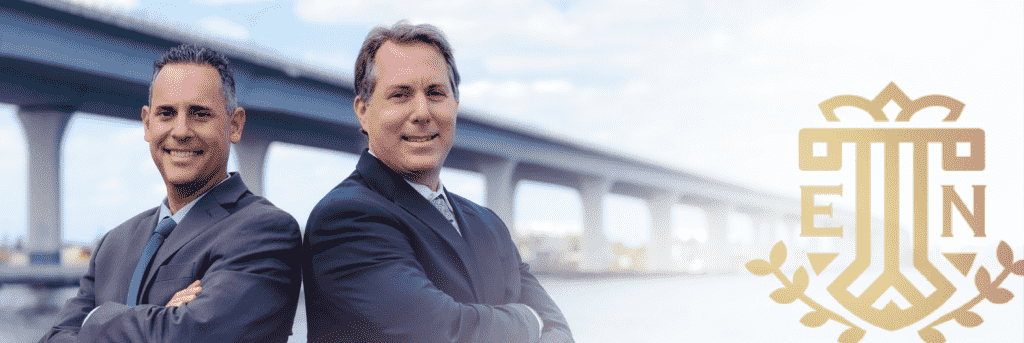
Get to know Matt & Ken the attorneys who will be by your side every step of the way. Click on the profiles below to learn more about each of our dedicated team members.
important PERSONAL INJURY FAQ
Answers from Ehrlich & Naparstek Personal Injury Lawyers
Get answers to the most frequently asked questions about personal injury cases from Ehrlich & Naparstek Personal Injury Lawyers. Learn about your legal rights, the claims process, and how to handle insurance companies effectively.
What is the statute of limitations for personal injury claims in Florida?
In Florida, the statute of limitations for most personal injury claims is four years from the date of the injury. This means that if you've been injured, you have four years to initiate legal proceedings. If you fail to file your lawsuit within this time frame, you may lose your right to seek compensation.
How is fault determined in Florida auto accidents?
Florida operates under a no-fault insurance system. This means that after most traffic accidents, your own insurance policy will compensate you for medical expenses and lost income, irrespective of who was at fault. However, in severe injury cases, you might be able to step outside this no-fault system and file a lawsuit against the at-fault driver.
What is Florida's comparative negligence rule?
Florida follows a pure comparative negligence rule. If you're found to be partially at fault for your injury, your compensation may be reduced by a percentage equal to your share of the blame. For instance, if you're found to be 20% at fault, you can still recover 80% of your total damages.
What damages can I recover in a personal injury lawsuit in Florida?
In Florida, you can seek compensation for both economic and non-economic damages. Economic damages include tangible costs like medical bills and lost wages, while non-economic damages cover intangibles like pain and suffering, emotional distress, and loss of enjoyment of life.
How long does it typically take to settle a personal injury case in Florida?
The duration varies based on the complexity of the case, the parties involved, and the evidence. While some cases might settle quickly, others, especially those that go to trial, can take months or even years to resolve.
How much will it cost me to hire a personal injury attorney?
We operate on a contingency fee basis. This means that we only get paid if you win your case or secure a settlement. Typically, the fee is a percentage of the compensation you receive.
What should I do immediately after an accident in Florida?
First, prioritize your safety and seek medical attention. Then, if possible, document the scene, take photographs, gather witness information, and report the incident to the police or relevant authorities. It's also advisable to contact a personal injury attorney as soon as possible.
What if the person who hit me doesn't have insurance?
If you're hit by an uninsured or underinsured driver in Florida, you can turn to your own insurance policy's uninsured/underinsured motorist coverage. This coverage can help compensate for your injuries and damages.
How do I prove pain and suffering in a personal injury case?
Pain and suffering are subjective and can be challenging to quantify. Evidence such as medical records, therapy sessions, personal journals, and testimonies from friends and family can help establish the extent of your pain and suffering.
FLORIDA CITIES & PERSONAL INJURY CASE TYPES WE SERVICE
DEDICATED REPRESENTATION IN FLORIDA'S MAJOR METROPOLITAN AREAS
At Ehrlich & Naparstek, we offer comprehensive legal solutions across a broad spectrum of personal injury areas, ensuring our clients receive the dedicated and expert representation they deserve. Our seasoned attorneys are committed to championing the rights of injury victims and securing the compensation they are entitled to. Below is an overview of the key cities and each case type we service in Florida.
Schedule A Free Consultation With A Florida Personal Injury Lawyer.
Our Florida Personal Injury Lawyers Are Here To Help. Call Us Today.
Contact Form
Essential Personal Injury Tips
Guidance from Ehrlich & Naparstek Personal Injury Lawyers
Discover valuable tips and insights from Ehrlich & Naparstek Personal Injury Lawyers to navigate the complexities of personal injury cases. Whether you’ve been in an accident or need advice on dealing with insurance companies, our expert guidance will help you protect your rights and make informed decisions. Contact us 24/7 at (772) 842-8822 (Stuart) or (561) 687-1717 (West Palm Beach) to schedule an appointment.
Premises Liability: Holding Property Owners Accountable in West Palm Beach
Knowing your legal rights regarding premises liability is crucial in holding property owners accountable for accidents that occur on their properties. Premises liability is a legal
Car Accident Guide: What to Do After a Collision in West Palm Beach
Experiencing a car accident can be a traumatic and confusing event. Knowing your legal rights and the steps to take following a collision is crucial to ensuring your safety and sec
Bicycle Accidents: Your Rights and Legal Recourse in West Palm Beach
Bicycle accidents can be devastating, resulting in serious injuries and significant financial burdens. Knowing your legal rights and the steps to take after an accident is crucial
Slip and Fall Accidents: When Negligence Leads to Injury in West Palm Beach
Understanding Your Legal Rights Slip and fall accidents can happen anywhere, from grocery stores to sidewalks. These incidents often result from hazardous conditions and can lead t
Truck Accidents: Pursuing Compensation After a Collision in West Palm Beach
Truck accidents can be devastating, leading to severe injuries, extensive property damage, and significant financial burdens. Understanding your legal rights is crucial in these si
Motorcycle Accidents: Seeking Compensation for Injuries in West Palm Beach
Motorcycle accidents can be devastating, often resulting in severe injuries or even fatalities. Understanding your legal rights and the steps to take following an accident is cruci
Dog Bite Injuries: Your Rights and Seeking Compensation in West Palm Beach
Dog bite injuries can be traumatic, both physically and emotionally. Understanding your legal rights and the steps to seek compensation is crucial for recovery. This guide provides
Boating Accidents: Navigating Legal Waters After a Crash in West Palm Beach
Boating accidents can be devastating, often resulting in severe personal injuries or even fatalities. Understanding your legal rights and the steps to take after such an incident i
Pedestrian Accidents: Understanding Liability and Compensation in West Palm Beach
Pedestrian accidents can have devastating consequences, making it crucial to understand your legal rights and options for compensation. This article explores the key aspects of ped







